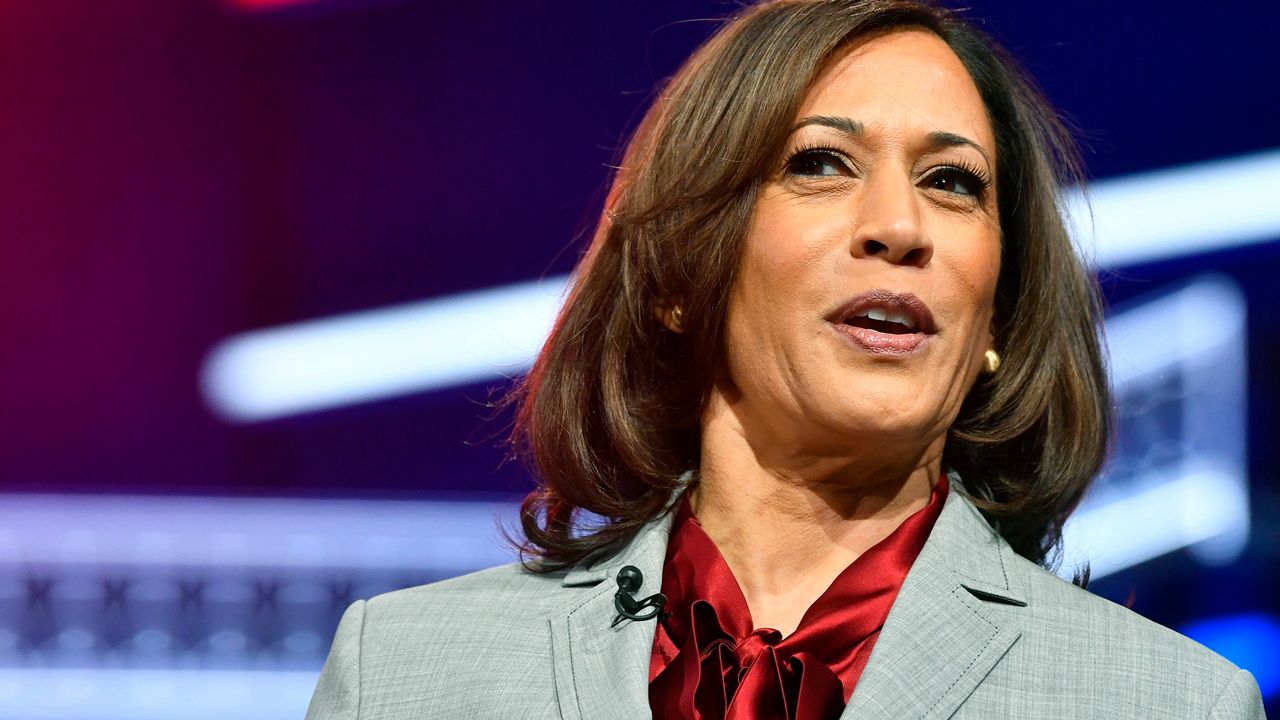NATIONWIDE — Kamala Harris is making history. The daughter of immigrants from India and Jamaica is now the presumptive Democratic vice presidential nominee.
But in the end, Joe Biden’s decision was cautious, perhaps even obvious. He weighed numerous candidates for his number two spot, but only the Senator from California, it would seem, could be greeted with “of course it’s Harris” upon selection.
That is because ideologically, the pair are “simpatico,” to use Biden’s term. Their positions have evolved; they are at the pinnacle of their party through formidable political skills, calibration and alliance-building – not as much through adherence to any single set of principles.
“It's never a safe bet if you choose a woman or a person of color and especially a woman of color. But as far as ideologically, she's not left like Elizabeth Warren,” said Christina Greer, Associate Professor of Political Science at Fordham University in New York and author of “Black Ethnics: Race, Immigration, and the Pursuit of the American Dream.”
“We've seen her views evolve over time,” Greer added, “but I don't think anyone could accuse her of being a part of the radical left that the president speaks of.”
“From a political standpoint, it's a pick that is likely to help energize parts of the Democratic base without offending independent or moderate Republicans who might be inclined to support Vice President Biden,” Joel Goldstein, a scholar of the vice presidency and Professor of Law Emeritus at Saint Louis University School of Law, told Spectrum News.
Roughly speaking, there are several overlapping aspects to the coalition that got Biden this far, and, with Harris’ help, very well may take them both to the White House.
They are voters foremost eager to defeat President Trump, and see Biden as a consensus candidate. They look fondly on his time as vice president to Barack Obama. They want someone riding the waves of change, and able to implement them in Congress without so much partisan fuss.
They like what Biden, and Harris, say about racial reconciliation in this time of searching. It’s not lost on some commentators that Biden announced Harris as his running mate three years after neo-Nazis paraded through Charlottesville, Virginia, shouting “Jews will not replace us!” (Harris’ spouse is Jewish).
Biden’s base was also filled with people eager to see the former vice president name a Black running mate.
“Black women have for long been the backbone of the Democratic Party and the backbone of America for that matter,” said Jotaka Eaddy, a political consultant who had advocated for Biden to name a Black running mate.
“It was time, we believe, I personally believe, that we shift from this conversation about Black women just being the backbone of the party, to being the leaders of the party,” Eaddy added.
Harris’ Indian heritage is also gaining notice – even as President Trump was reaching out to the same group.
“Most Indian Americans have tended to vote Democrat, and it’s likely that Biden would have won the Indian American vote,” Karthick Ramakrishnan, a professor of public policy at University of California, Riverside and founder of AAPI Data, which publishes research on Asian Americans and Pacific Islanders, wrote in an email.
“That said, Donald Trump had made several high-profile overtures towards the Indian American community, including the ‘Howdy Modi’ event in Houston and the subsequent presidential visit to India.” Trump also selected Americans of Indian descent to prominent positions, including former UN ambassador Nikki Haley.
“It wasn’t clear that these moves were changing the opinions of Indian American voters, who have tended to be the most Democratic voters among Asian Americans, and who tended to oppose President Trump’s policies on health care and immigration, and his rhetoric on race.”
In the next few days, Harris’ record will be pored over and perhaps again deemed insufficiently progressive. She has changed her position on Medicare for All; her record as a prosecutor is already lamented as too tough on crime when there is demand for major changes to policing.
Those conversations cut both ways, though: they may again give progressives pause – keeping them from voting in November, even as former nominees Bernie Sanders and Warren are endorsing Harris’ nomination.
They may also undercut President Trump’s contention that Harris is tugging Biden into the “radical mob,” as his campaign put it.
The pandemic is upending how politics is done; Biden is also running a cautious campaign befitting his polling advantage. It could be that we see less of Harris than some would like. There is, however, still the debate: Harris is expected to meet Vice President Mike Pence on Oct. 7 in Salt Lake City.



